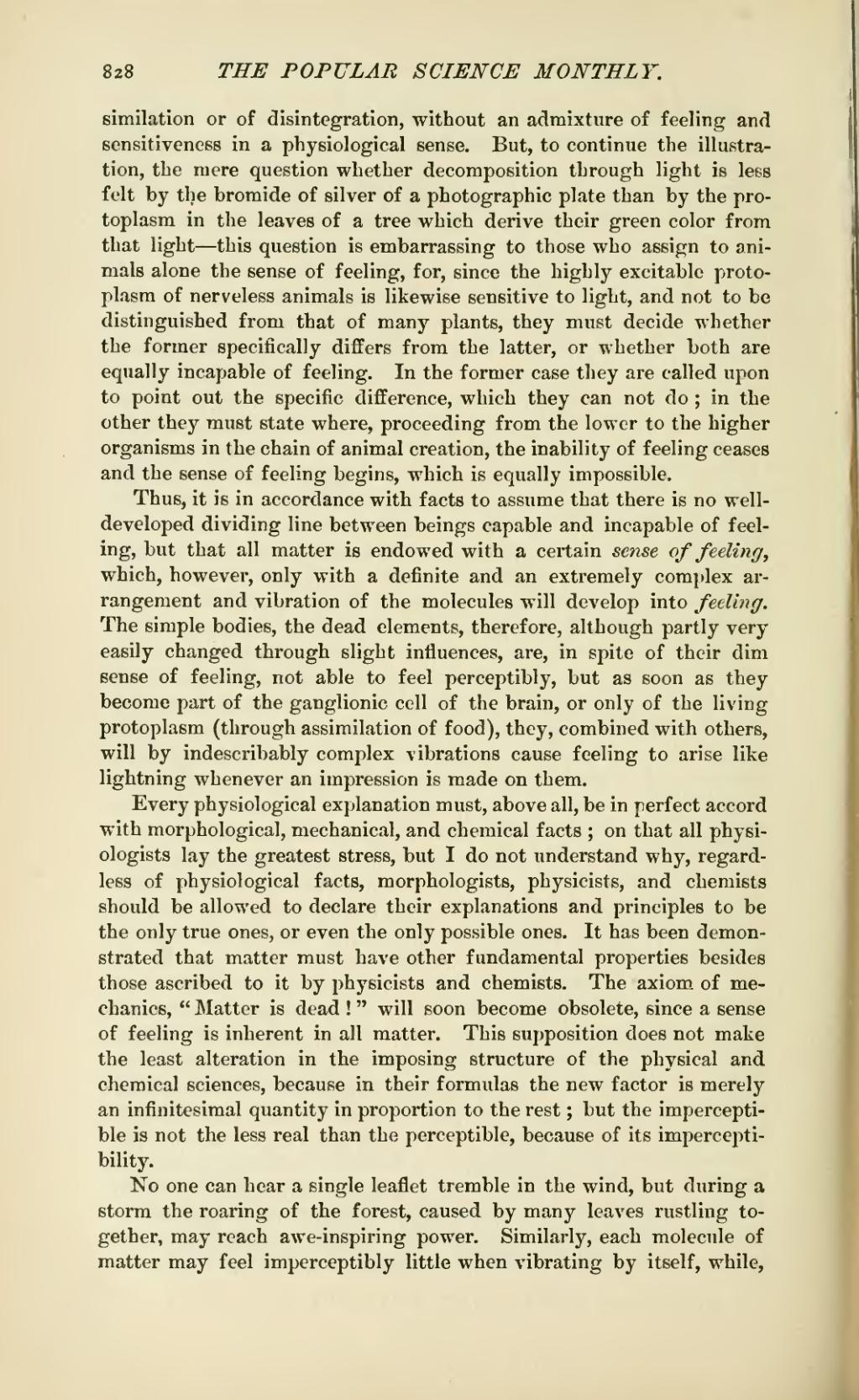similation or of disintegration, without an admixture of feeling and sensitiveness in a physiological sense. But, to continue the illustration, the mere question whether decomposition through light is less felt by the bromide of silver of a photographic plate than by the protoplasm in the leaves of a tree which derive their green color from that light—this question is embarrassing to those who assign to animals alone the sense of feeling, for, since the highly excitable protoplasm of nerveless animals is likewise sensitive to light, and not to be distinguished from that of many plants, they must decide whether the former specifically differs from the latter, or whether both are equally incapable of feeling. In the former case they are called upon to point out the specific difference, which they can not do; in the other they must state where, proceeding from the lower to the higher organisms in the chain of animal creation, the inability of feeling ceases and the sense of feeling begins, which is equally impossible.
Thus, it is in accordance with facts to assume that there is no well-developed dividing line between beings capable and incapable of feeling, but that all matter is endowed with a certain sense of feeling, which, however, only with a definite and an extremely complex arrangement and vibration of the molecules will develop into feeling. The simple bodies, the dead elements, therefore, although partly very easily changed through slight influences, are, in spite of their dim sense of feeling, not able to feel perceptibly, but as soon as they become part of the ganglionic cell of the brain, or only of the living protoplasm (through assimilation of food), they, combined with others, will by indescribably complex vibrations cause feeling to arise like lightning whenever an impression is made on them.
Every physiological explanation must, above all, be in perfect accord with morphological, mechanical, and chemical facts; on that all physiologists lay the greatest stress, but I do not understand why, regardless of physiological facts, morphologists, physicists, and chemists should be allowed to declare their explanations and principles to be the only true ones, or even the only possible ones. It has been demonstrated that matter must have other fundamental properties besides those ascribed to it by physicists and chemists. The axiom of mechanics, "Matter is dead!" will soon become obsolete, since a sense of feeling is inherent in all matter. This supposition does not make the least alteration in the imposing structure of the physical and chemical sciences, because in their formulas the new factor is merely an infinitesimal quantity in proportion to the rest; but the imperceptible is not the less real than the perceptible, because of its imperceptibility.
No one can hear a single leaflet tremble in the wind, but during a storm the roaring of the forest, caused by many leaves rustling together, may reach awe-inspiring power. Similarly, each molecule of matter may feel imperceptibly little when vibrating by itself, while,

